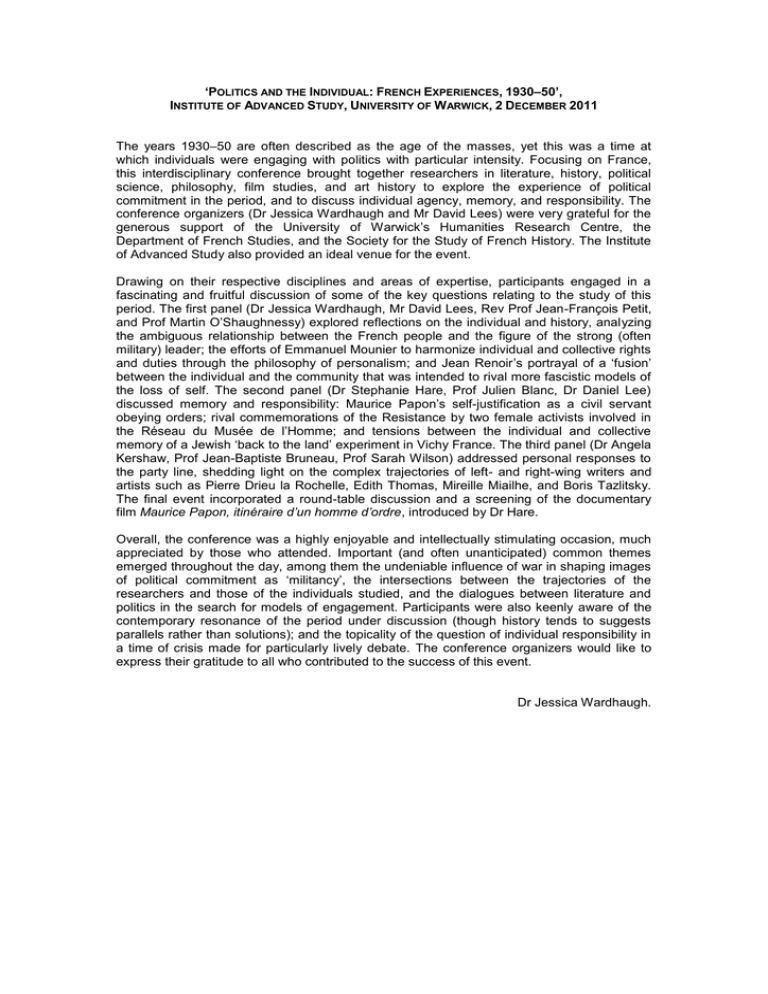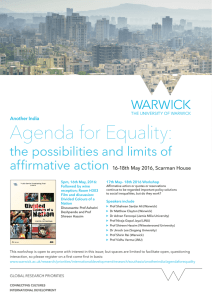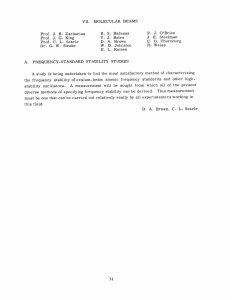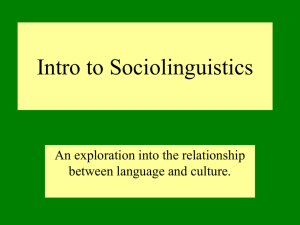‘P –50’, I :
advertisement

‘POLITICS AND THE INDIVIDUAL: FRENCH EXPERIENCES, 1930–50’, INSTITUTE OF ADVANCED STUDY, UNIVERSITY OF WARWICK, 2 DECEMBER 2011 The years 1930–50 are often described as the age of the masses, yet this was a time at which individuals were engaging with politics with particular intensity. Focusing on France, this interdisciplinary conference brought together researchers in literature, history, political science, philosophy, film studies, and art history to explore the experience of political commitment in the period, and to discuss individual agency, memory, and responsibility. The conference organizers (Dr Jessica Wardhaugh and Mr David Lees) were very grateful for the generous support of the University of Warwick’s Humanities Research Centre, the Department of French Studies, and the Society for the Study of French History. The Institute of Advanced Study also provided an ideal venue for the event. Drawing on their respective disciplines and areas of expertise, participants engaged in a fascinating and fruitful discussion of some of the key questions relating to the study of this period. The first panel (Dr Jessica Wardhaugh, Mr David Lees, Rev Prof Jean-François Petit, and Prof Martin O’Shaughnessy) explored reflections on the individual and history, analyzing the ambiguous relationship between the French people and the figure of the strong (often military) leader; the efforts of Emmanuel Mounier to harmonize individual and collective rights and duties through the philosophy of personalism; and Jean Renoir’s portrayal of a ‘fusion’ between the individual and the community that was intended to rival more fascistic models of the loss of self. The second panel (Dr Stephanie Hare, Prof Julien Blanc, Dr Daniel Lee) discussed memory and responsibility: Maurice Papon’s self-justification as a civil servant obeying orders; rival commemorations of the Resistance by two female activists involved in the Réseau du Musée de l’Homme; and tensions between the individual and collective memory of a Jewish ‘back to the land’ experiment in Vichy France. The third panel (Dr Angela Kershaw, Prof Jean-Baptiste Bruneau, Prof Sarah Wilson) addressed personal responses to the party line, shedding light on the complex trajectories of left- and right-wing writers and artists such as Pierre Drieu la Rochelle, Edith Thomas, Mireille Miailhe, and Boris Tazlitsky. The final event incorporated a round-table discussion and a screening of the documentary film Maurice Papon, itinéraire d’un homme d’ordre, introduced by Dr Hare. Overall, the conference was a highly enjoyable and intellectually stimulating occasion, much appreciated by those who attended. Important (and often unanticipated) common themes emerged throughout the day, among them the undeniable influence of war in shaping images of political commitment as ‘militancy’, the intersections between the trajectories of the researchers and those of the individuals studied, and the dialogues between literature and politics in the search for models of engagement. Participants were also keenly aware of the contemporary resonance of the period under discussion (though history tends to suggests parallels rather than solutions); and the topicality of the question of individual responsibility in a time of crisis made for particularly lively debate. The conference organizers would like to express their gratitude to all who contributed to the success of this event. Dr Jessica Wardhaugh.






